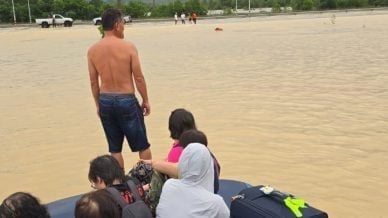Public trust in the health and police services are crucial during a turbulent political and pandemic period for Malaysia. Therefore, more interactions with PSSCs will increase the accountability and impartiality of the services, which will increase public trust and strengthen parliamentary democracy.
Our open call focuses on the public administration and independence of the civil service.
We do not discuss the many reasons for the prime minister to test his majority in Parliament immediately (like increasing public confidence, strengthening our democratic processes or reassuring investors). We also do not discuss the many ways for Parliament to convene safely and effectively (like vaccinations, hybrid physical/online sittings, better ventilation, or wearing double face masks).
Political twists and turns are exciting and important, but the rakyat must pay attention to our public administration during this turbulent period.
An impartial, independent and effective civil service will make the difference between life and more deaths, and will increase public trust.
Therefore, we call for the health and police services to have more scrutiny by Parliamentary Select Committees (PSSCs) even if Parliament is not in session.
This could be a simple public administration decision for more frequent and structured interactions with the health, science and innovation and security PSSCs.
This means that the PSSCs must receive appropriate political, financial and human capital to become much more active than previously.
Importantly, we must urgently allow the PSSCs to function through hybrid or online meetings, even when Parliament is not in session.
The Director-General of Health and the Inspector-General of Police (and their entire teams) are simply the two most crucial functions for Malaysia's COVID-19 and political situation.
Therefore, we must provide them a way to function effectively and independently.
If we protect them from partisan politics and increase PSSC scrutiny, it will increase public trust.
The civil service (especially health and police services) must remain impartial and independent for many reasons.
One, politicians and governments come and go, but the civil service remains.
Two, the civil service is delivering life-saving public services and must be ring-fenced from partisan politics.
Three, we must preserve public trust in the civil service, and trust comes from the reality and perception that the civil service is impartial and independent.
Four, the civil service already reports indirectly to Parliament anyway (via the prime minister and cabinet).
And finally, we are in an unprecedented political situation that requires unprecedented solutions to protect the civil service.
These five reasons are strong enough for the health and police services to be more accountable to the rakyat via PSSCs.
With more scrutiny and interactions with PSSCs (even when Parliament is not in session), we will preserve the independence and impartiality of the health and police services.
We will also reduce the risk of them being politicized, being used as political tools, or being perceived as being used as political tools.
To increase public trust in the health and police services and to strengthen our parliamentary democracy, we call for more scrutiny by PSSCs.
Signatories:
|
Tan Sri Dr Abu Bakar Suleiman Dr Khor Swee Kheng Dato' Dr Amar Singh-HSS Tan Sri Dr Munir Majid Dato' Ambiga Sreenevasan Distinguished Professor Dato' Dr Rajah Rasiah Cynthia Gabriel (Founding Director, C4) Professor Emeritus Datuk Dr Shad Saleem Faruqi Muhammad Faisal Abdul Aziz (President, ABIM) Tricia Yeoh (CEO, IDEAS) |
Tan Sri Dr Abu Bakar Suleiman Dato' Dr Amar Singh-HSS Dato' Ambiga Sreenevasan Cynthia Gabriel (Founding Director, C4) Muhammad Faisal Abdul Aziz (President, ABIM) Dr Khor Swee Kheng Tan Sri Dr Munir Majid Distinguished Professor Dato' Dr Rajah Rasiah Prof Emeritus Datuk Dr Shad Saleem Faruqi Tricia Yeoh (CEO, IDEAS) |
ADVERTISEMENT
ADVERTISEMENT


































